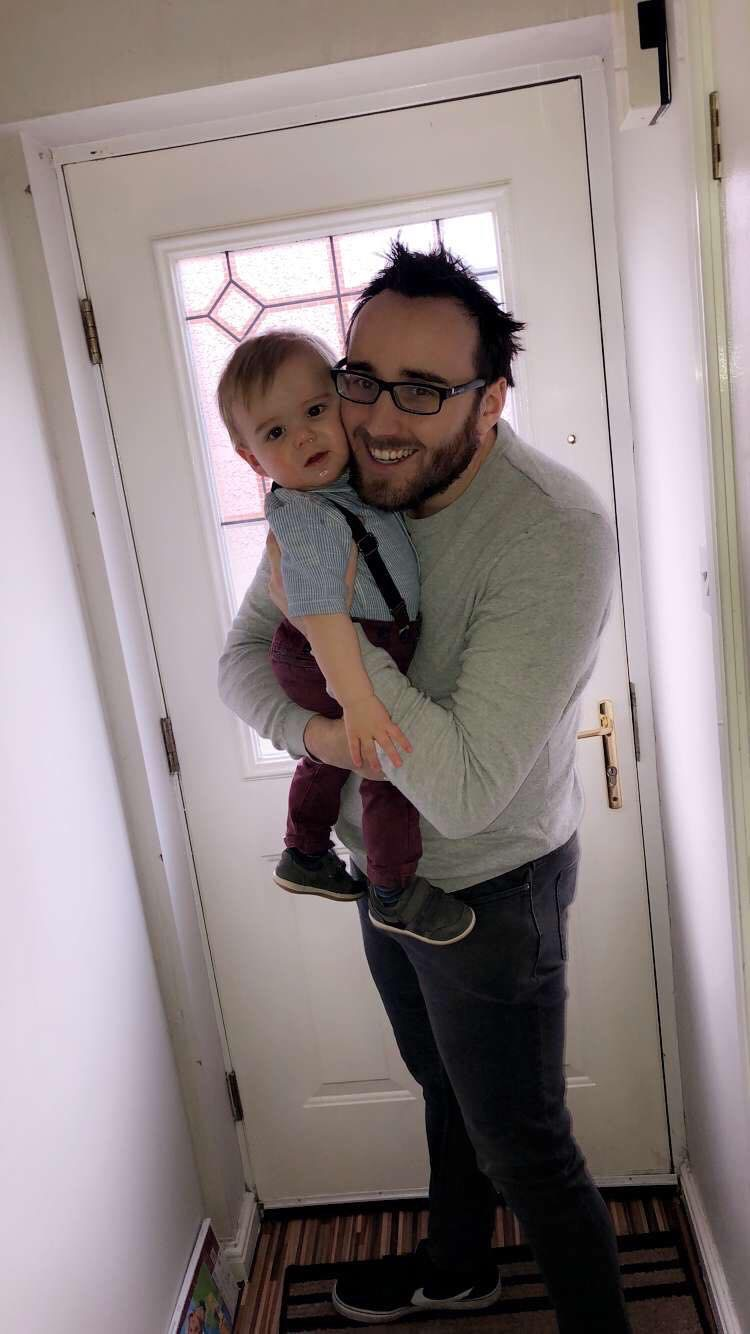Delay, Diagnosis, Duration and Distance
“Don’t worry James you haven’t got diabetes, you are probably just stressed.
However, we will do a fasting blood glucose test in five days just to be sure. In the meantime please go to the opticians to have your eye sight checked and go to the sexual health clinic to rule out a sexually transmitted infection’’
GP consultation
Eden education and research associate/facilitator, James Ridgeway, writes about his experiences with being diagnosed with Type 1 diabetes on this day, eight years ago.
“My life with type 1 diabetes started off on an interesting path, as I presented to my GP with clinical symptoms of excessive thirst, urination, weight loss, fatigue, thrush and eye sight changes.
In the days that followed, whilst waiting for my blood test, I did as I was advised and went to the sexual health clinic, which identified thrush. I also attended my local opticians; there was a significant change in my prescription and I needed to order new glasses.
Despite being informed by my GP that I did not have diabetes, this didn’t reassure me, because my body was acting in very peculiar ways. Over the next four days, there wasn’t any improvement, and on the 12th of February 2012, I decided to do something about this myself.
At the time, I was a second year student nurse on an A&E placement, so I had all the facilities surrounding me to hopefully get some answers. Listing all my symptoms with one of the qualified nurses, resulted in them identifying high amounts of glucose in a urine sample, but no Ketones.
The next step was to discuss this result with a doctor within the department who requested for me to have a blood glucose test, which showed a result of 30.6mmol/l. I looked at the nurse and doctors face as they both appeared shocked and in disbelief. The doctor requested a second test which read similar and 45 minutes later I received a diagnosis of type 1 diabetes.
Today marks my 8th year ‘diaversary’ of living with type 1 diabetes.
Eight years of daily injections, blood glucose monitoring, eight years of hyper and hypoglycaemic events, and a Diabetic ketoacidosis (DKA) hospital admission secondary to norovirus.
The above image shows figures of living with type 1 diabetes for eight years
“Despite the physiological effects I have still been able to achieve some life changing events, such as graduating as a qualified nurse, becoming a father for the first time and striving through my career development within nursing and education.
Throughout the initial years of living with type 1 diabetes, I solely focused on the physiological status of my condition (i.e. HbA1c, blood glucose levels, lipid profile, blood pressure, feet and eyes).
Seven years on, and it was at this point I started to experience a few weeks of diabetes distress and the development of hypo anxiety, which made me realise the importance of prioritising my psychological well being as much as my biological status.
Because mental health and emotional well being had never been discussed with me during previous diabetes appointments, I had never been aware of its priority and how to recognise psychological changes.
“The development of diabetes distress was a particularly difficult time in my life and thankfully lasted only a few weeks.
At first I did not understand why I was feeling so upset, and at times crying with tears each day.
“However, through conversations with friends, family and work colleagues, I soon began to understand that these emotions were caused by the general daily requirements and experiences of living with type 1 diabetes.
The impact on my psychological well being and not knowing what the future held, in particular, whether my son would go on to develop diabetes and the complications associated with diabetes, has been mentally challenging.
Experiencing increased anxiety at the thought of developing sight loss; I started to question how diabetes would impact on my quality of life and ability to work. Not to mention, the thought of developing erectile dysfunction and the impact this would have on my relationship.
Most concerning, is the thought of my son being diagnosed with diabetes, the emotions of sadness and guilt are overwhelming at times.
Despite these potential prospects contributing to the impact on my psychological well being, they have also provided a motivation to improve/maintain the management of my type 1 diabetes.
My psychological well being has not only been affected by present and future factors as identified above, but also from the care that I have received as a patient.
Recently, I had a quality appointment with my primary care Diabetes Specialist Nurse, whereby 5% of the conversation was about my targets, and the remainder was about looking into the future (i.e. use of technology). I left the appointment feeling positive and proud of myself.
However, the following consultation I had with another healthcare professional was very different. I felt like I wasn’t doing well enough, needed to lose weight and manage my condition ‘’better’’. I also felt like I wasn’t listened to, nor had my own particular goals/concerns been addressed.
Reflecting on the experience, I found that it was not the subject matters that caused me to feel upset but more of the language used that was not appropriate. This is why the publication of Language Matters is crucial as it provides a clear and concise guide for healthcare professionals to communicate effectively with people living with diabetes.
“Following my psychological experience of living with diabetes, I would strongly advise for every healthcare professional to support the campaign and consider psychological well being as important as biological factors.
How I feel inside, is, at times much more important to me than my present clinical findings, and providing effective psychological support can help me to maintain/improve my biological status.
One aspect that has recently become part of my diabetes management and has had a positive impact on my psychological well being is technology.
It has been 98 years since insulin was first administered in the world, thanks to Sir Frederick G Banting, Charles H Best and JJR Macleod.
During the last few decades we have seen advancements in technology. For people that have asked me what it is like living with diabetes, my response is that despite my diagnosis there is no better time to be living with the condition.
This is because I am fortunate to be surrounded by so many technological advancements that were not previously available. Recently, I have started to use Freestyle Libre, which provides me with more information than just numbers representing my present blood glucose level.
Freestyle Libre
“Freestyle Libre informs me of how my glucose levels have been trending throughout the day/night, what direction my glucose levels are heading in and whether corrective methods are required (i.e. insulin correction dose or intake of carbohydrates) to reduce the risk of hypo/hyperglycaemic events, and enhance my time in target.
“During my time of living with diabetes I have realised that no matter how committed and passionate you are, there are times in life that can affect you managing your diabetes.
My priorities in life have significantly changed following the birth of my son, which caused my diabetes management to take a step sideways. I have always been compliant with my diabetes and always strived for success, however during the first years of fatherhood my time spent prioritising my diabetes became less. This caused a negative physiological impact upon my diabetes management. As my life of parenthood settled and I became more experienced as a father, I have been able to find more time and effort to prioritise my diabetes management.
“There is a saying that ‘knowledge is power’ and with regard to my diabetes management, I can strongly relate to this. Ever since being diagnosed, I have wanted to enhance diabetes knowledge to healthcare professionals in order to improve the quality of life for people living with diabetes, and reduce the risk of patients going through similar experiences of diagnosis that I had.
My desire for providing diabetes education has led me to become part of the wonderful Eden team. I am proud to state that I love my job, and I truly do. I am passionate in all that I educate, and thoroughly enjoy those that I work with on a daily basis.
My work with Eden has also led me to become a developing Diabetes Specialist Nurse within the University Hospitals of Leicester NHS Trust, and both roles have not only had a positive impact on my working life, but also on my diabetes management.
As I head into my 9th year of living with diabetes, my analysis is that the previous eight have been a roller-coaster of a ride. Living with diabetes has not been easy, but it has not stopped me from achieving my goals in life.
I will continue to stay motivated and committed to doing the best, that is all I can ask of myself. No matter if things, such as complications, present in the future, at least I can say that I gave it a damn good go!
James Ridgeway, Eden education and research associate/facilitator
For further information on the above or to speak with one of our diabetes specialist team please contact: eden@uhl-tr.nhs.uk






